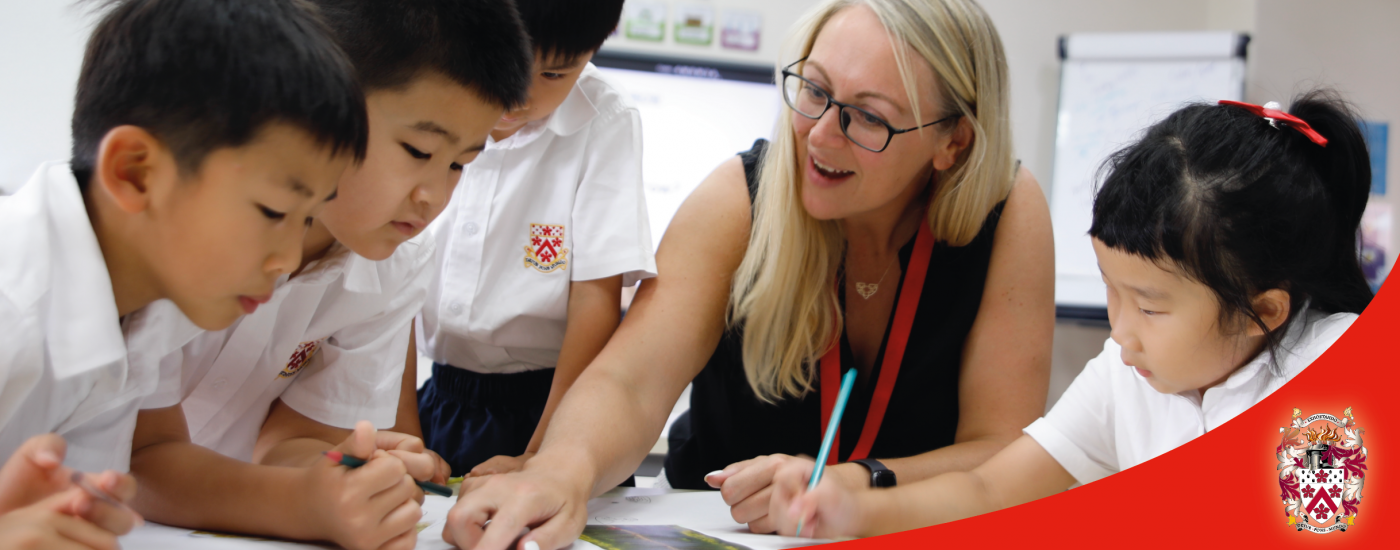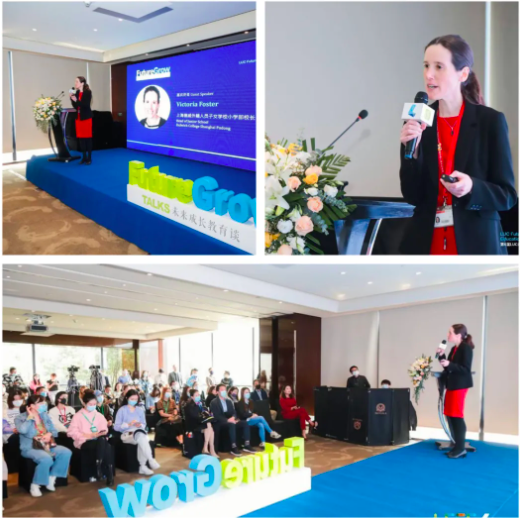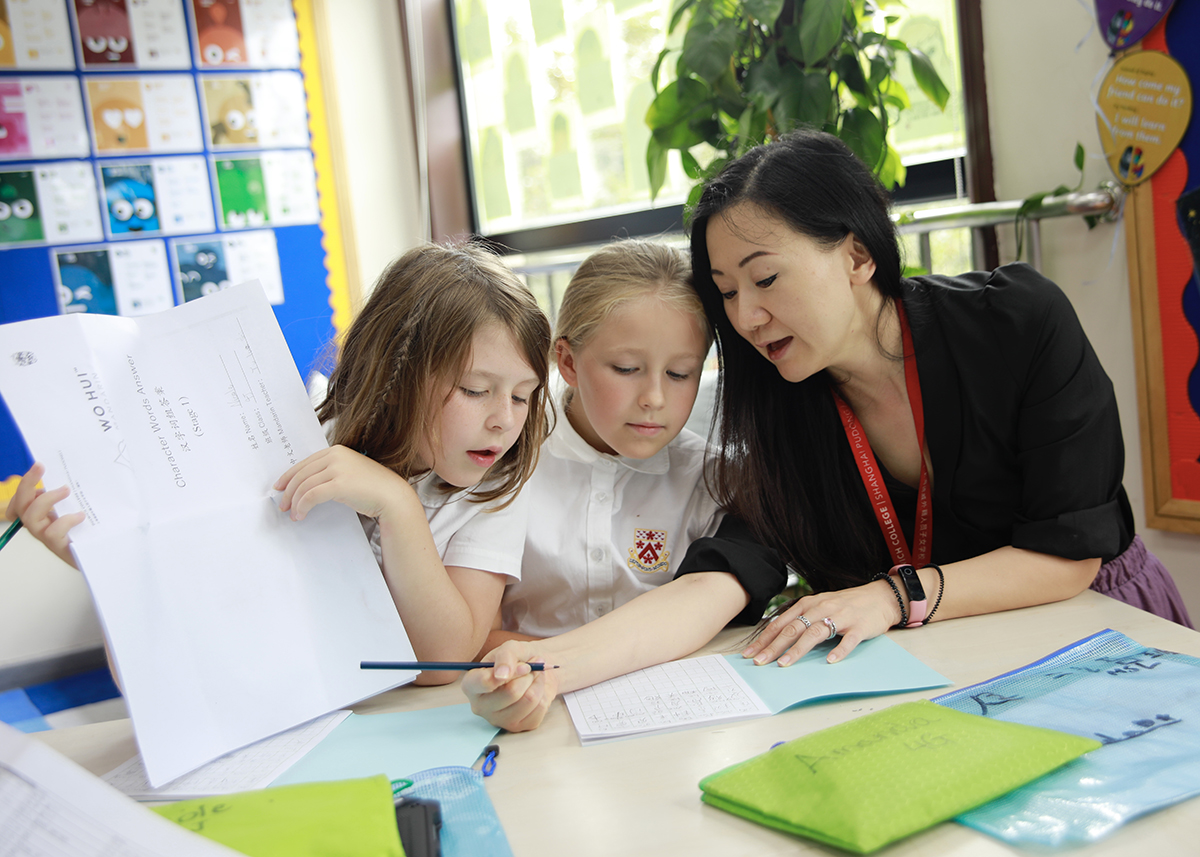How the Growth Mindset Powers Our Junior School

Our Junior School held Personal Growth Celebrations the last week of Term 1. These are an opportunity to recognize students who have displayed exceptional personal growth - academically, socially, athletically, artistically or otherwise - in front of parents and peers. Behind each certificate given out is a rich example of what we call "the growth mindset".

What is a growth mindset?
Growth mindset is based on scientific advances in understanding how people learn - not just young people, but all people. At its heart, a growth mindset believes that abilities can be developed. This is often contrasted to a fixed mindset which stops at "this is what I have and that's it."
"Recognizing personal growth over pure academic achievement is acknowledgement that each child develops differently at their own pace," says Head of Junior School, Victoria Foster. "It also an opportunity to make sure that each child has a chance to be recognized for the hard work and effort they put in throughout the year. This is key to establishing and nurturing the growth mindset in our Junior School."

The benefits of a growth mindset for a child have been quantified by scientific research. Students with a growth mindset:
- Have academic development advanced by 7 months
- Are statistically more likely to reach goals
It's important to note that a growth mindset is something young people develop only through consistent practice. It's not an in-born capability which only a few lucky ones enjoy. But in practical terms what does it mean to have a growth mindset?

Having a growth mindset means:
- Trying different approaches
- Setting clear targets
- Pushing the limits of your understanding
- Not giving up
It's also important to note what a growth mindset is not. A growth mindset is not simply "trying harder". Nor is it doing more study. Doing more of something that isn't working doesn't lead to growth; it leads to frustration. Getting out of a negative feedback cycle requires metacognition, or thinking about the process.
How to help your child?
How can parents help their children nurture a growth mindset? There's no set formula, but there are a few things you'll often hear growth minded parents say to their children:
- "Ok – so you didn’t do as well as you wanted to. Let’s look at this as an opportunity to learn."
- "I expect you to make mistakes. It is the kind of mistakes that you make along the way that tell me how to support you."
- "If it were easy, you wouldn’t be learning anything."
- "I am proud of you for not giving up."
- "What choices did you make that helped you succeed?"

One simple but powerful growth mindset trick parents can adopt right now is harnessing the power of "yet". All too often we hear our children say to us "I can't do it." But what they are really saying is: I can't do it YET. You may not be able to multiple 7 x 5...yet. You may not be able to write the character 会 perfectly...yet.
Adding that crucial "yet" emphasises process over outcome, flexibility over finality, which is the essence of a growth mindset.

How do we nurture growth mindset in our College?
Growth mindset is built into the fabric of our Junior School pedagogy in many different ways.
1. In the language we use
We understand the power of words. We deliberately use words that recognise and celebrate perseverance and personal growth. We encourage students to embrace struggle and applauded mistake making.
2. In our assessment strategy
We focus on low-stake quizzes that measures the knowledge students have retained, rather than their ability to take tests – utilizing retrieval practice and effective spacing techniques.
3. In our responsive teaching tools and effective feedback methods
Small, more frequent snapshots of learning empowers our teachers to deliver critical feedback to students in real-time. Student progress can then be accurately tracked and teaching can be personalised to individual needs.
4. In our equal access approach
Our students engage with the same material – allowing them to determine their own starting points, and not be prevented them from reaching their potential.
5. In our use of an inquiry model
Our use of the inquiry method challenges students to apply their understanding on their own terms through careful facilitation and exploration.

Summary
- Growth mindset harnesses the power of “yet”
- Growth mindset is grounded in neuroscience
- Growth mindset harnesses the power of “yet”
- Growth mindset is key for future success
- Growth mindset is something anyone can achieve










